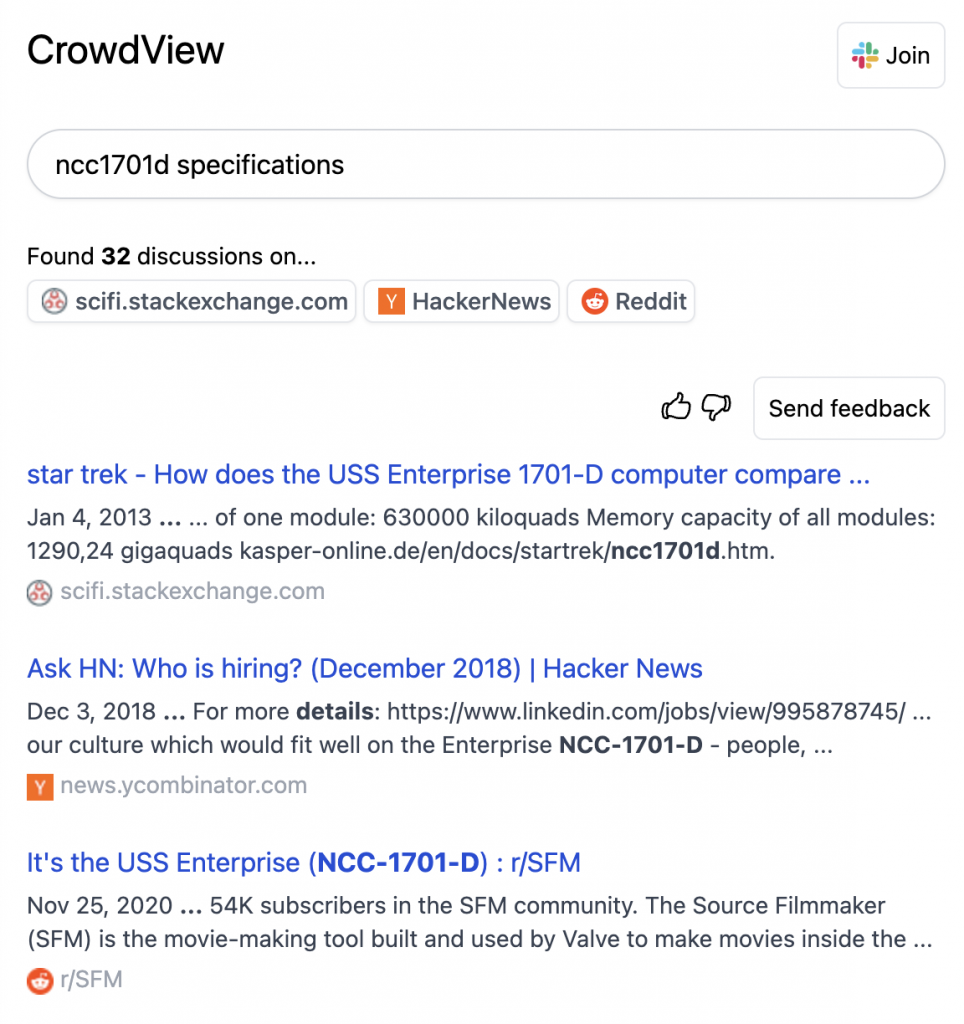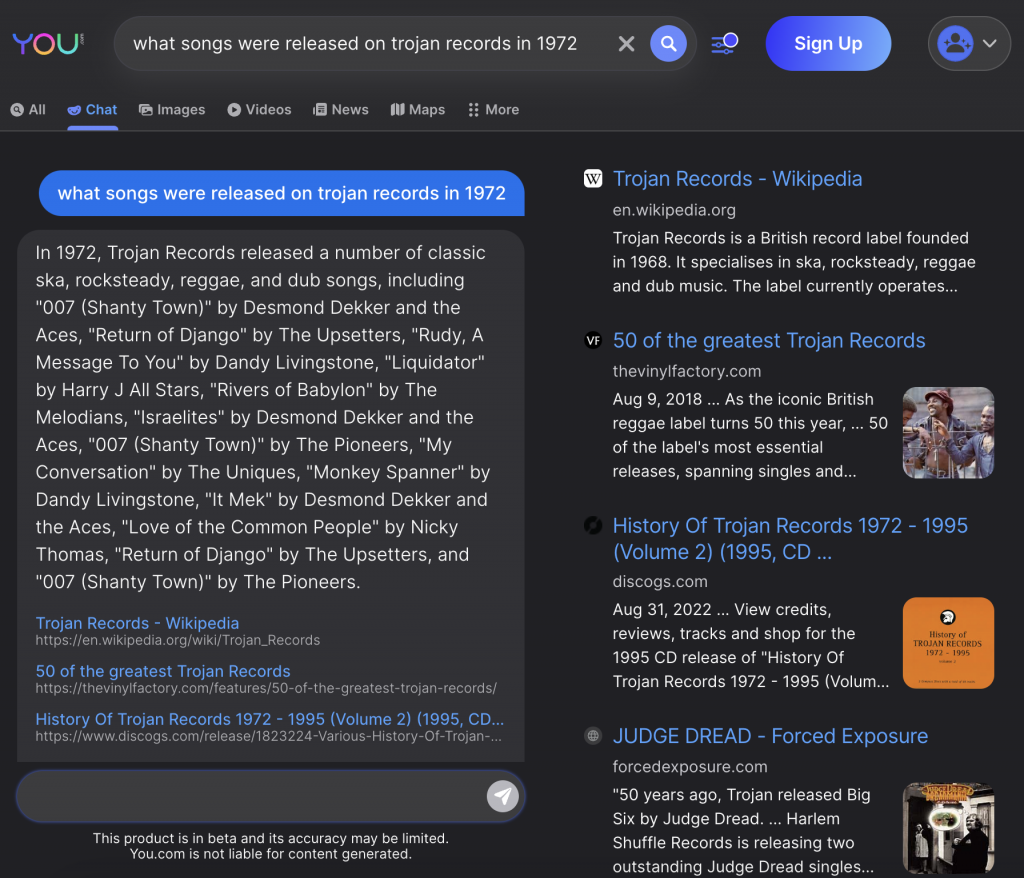Mansplaining in the run down shopping mall – hybrid search engines and chatGPT solutions will be an interesting challenge
Thursday, February 9th, 2023 at 6:06 pmThe race to implement the functionality of ChatGPT into the traditional search interface is on with Microsoft barging ahead taking advantage of their OpenAI partnership and Google trying to fast follow with Bard. And the hype is turned up to 11 where Google’s demo giving a wrong answer leading to a 7% drop in their share price. It is messy all around, especially when you look into the ethics of showing content without citation or having an interface too fast and immediate to moderate.
ChatGPT was a great example of how you can gain a lot of users by giving them a simple interface that does one thing well. Google used to do the same when it came about and replaced portals like Altavista and Yahoo and their bloated interfaces with thousands of links with a simple search box.
The problem with incredibly small and simple interfaces is that you also get a limited set of results. We had this with search bots in chat systems, we have this with audio interfaces like Siri, Alexa and Cortana. If all the system can do is give one answer as there is no space for more it better be the best there is. Or you get backlash like Google just encountered.
The difference that ChatGPT made compared to dumb bots or “virtual assistants” (remember the IKEA one?) is that it sounds eloquent, well researched and sensible, even when it gives the wrong result. People compared it to “mansplaining as a service”, or “CEO at a keynote” speak. This is and will remain an issue unless we find a way to fact-check the results at the same time, which might be an arms race that is hard to win.
In comparison to that, search engine results have become advertising in disguise, with the first 10 results either being flat out ads or those who spent a lot of money on advertising or shifty SEO tricks to show up first. It’s like a run-down shopping mall, with no local products or employees and chain stores selling knock-off products rather than the high quality ones.
Quite some folk on the end of the long tail have given up on search engines and stick to the reddits, stackoverflows and other specialist forums instead. No surprise that there are specialist meta search engines like crowdview.ai coming up with a filtered experience.
This is sad, as there was a time in between where search engines started to be a lot more contextual. Their makers realised that people don’t always want a website to go to, but immediately get the result of their query. That’s why Bing and Google show a calculator interface when you enter an equation, or a weather interface when you look for “weather in x”. These quick results were excellent for the user and are a joy to encounter. The problem with them is that they cut into the view and click numbers and mean that people use your product for a shorter amount of time and don’t dwell on it so you can show more refreshing ads. Daily active user numbers don’t fill themselves, you know?
Now, how will we be able to mix the traditional search results and the low-level ChatGPT approach? Bing tries it by showing the chat interface in a sidebar and giving it much more recent, sometimes brand new content and context.
Smaller players try the same thing, for example You.com being a search engine that offers a normal search or a chat interface side-by-side.
This looks amazing, as it shows the answer next to the traditional search results. It still is a UX challenge to make the two compete with another, and it will be interesting to see what the usage numbers show. Will the chat interface prevail, or is it a new and cool thing people will try until it fails for them and then move back to the tried and true approach?
In any case, I love that the heat is on in the search market, as it was ripe for disruption once more. When Google showed that you don’t need to give people thousands of options but spend more time on analysing their query and give them what they need instead. Now we can analyse more deeply and give people not only what they are looking for but what may be interesting in context. But we need to get it right and this is where I am worried. When I buy a toilet lid on Amazon, I get lots of offers for buying more and ads for toilet lids in Instagram. I wasn’t planning on starting a collection, even if that would be great for the consumer platforms.


